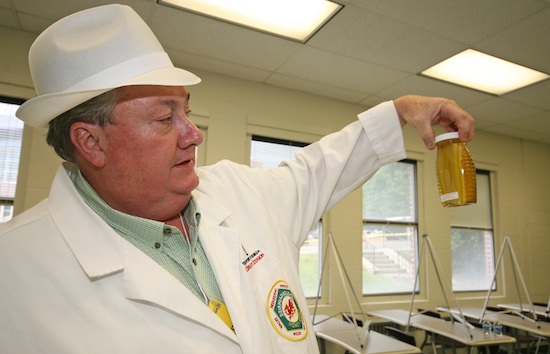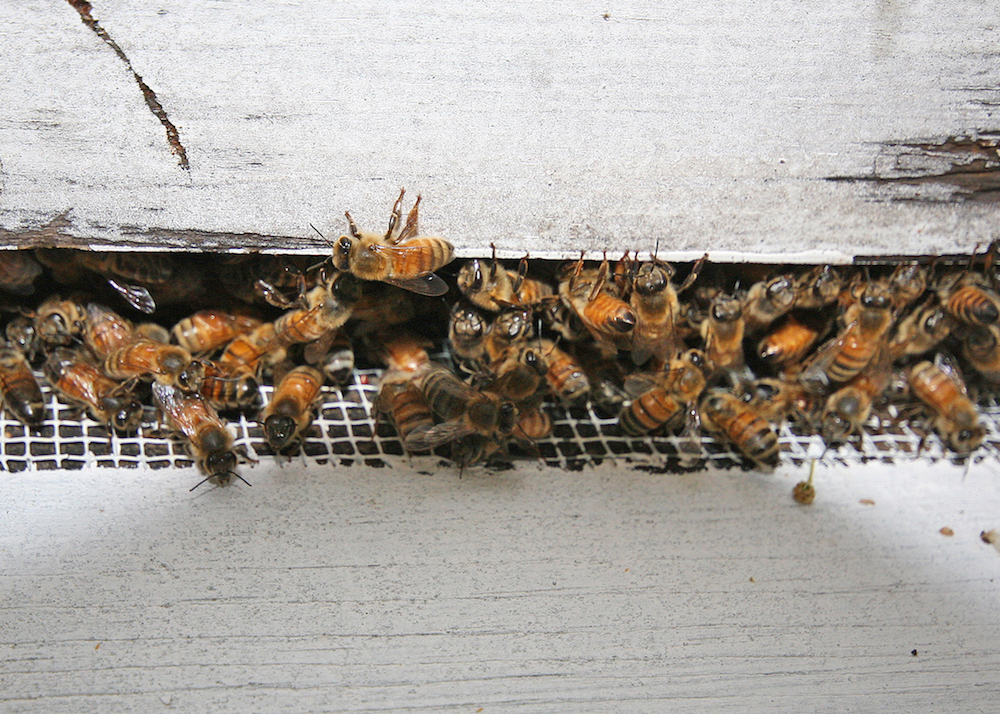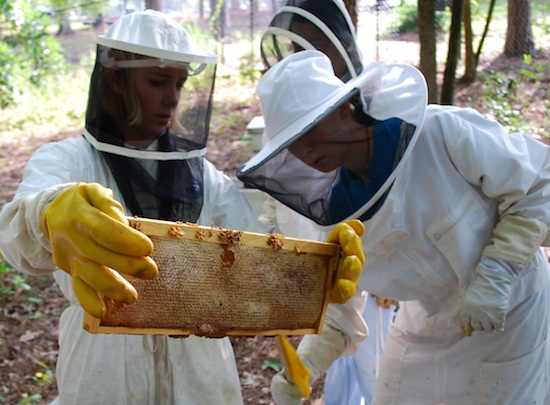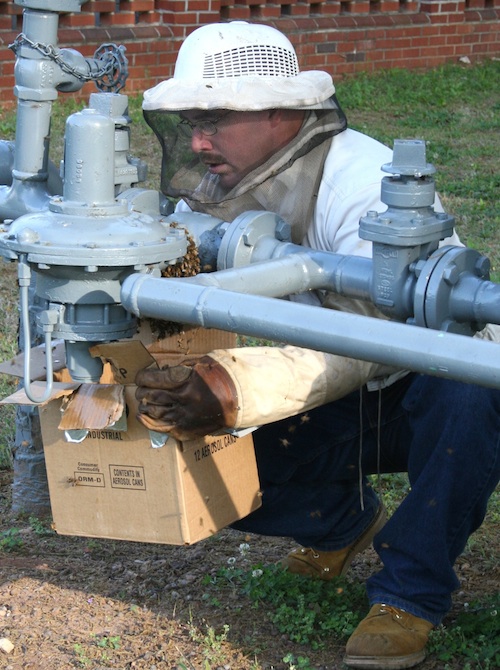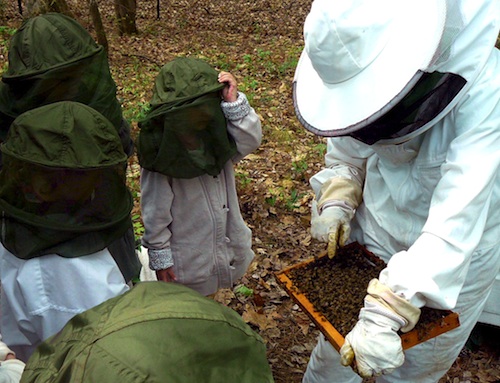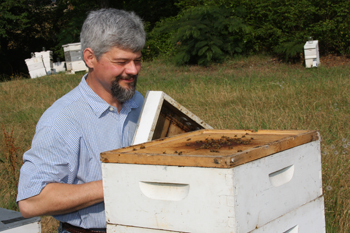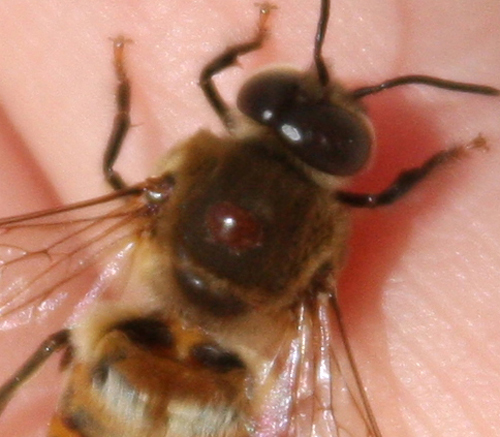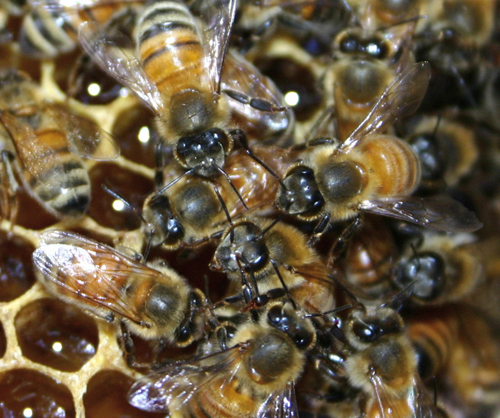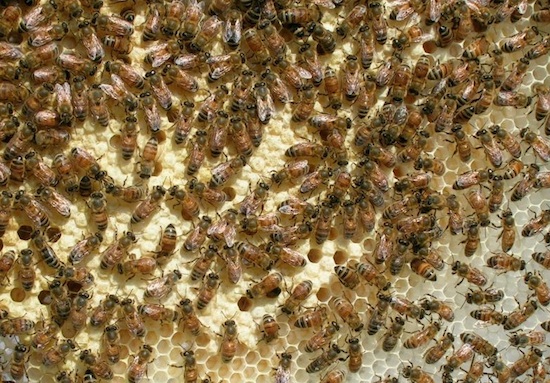 CAES News
CAES News
Honeybees
David Linvill retired from his job as a University of Georgia Extension agent, but he hasn’t stopped educating the public. Now, he focuses all of his resources on one topic — honeybees and their significance to the state’s crops.

